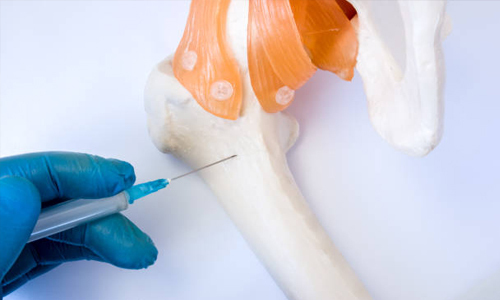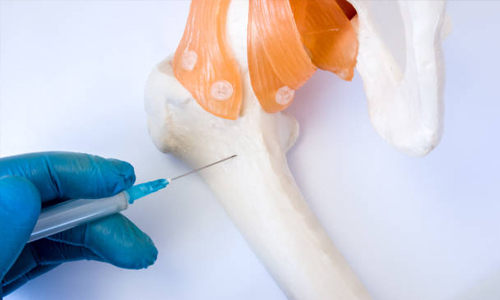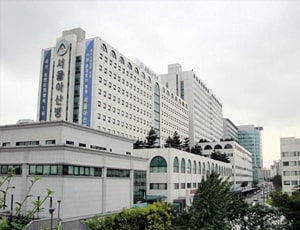The average cost of Bone Marrow Transplant in Seoul approximately starts from USD 220000
Treatment cost

Gurgaon, India
USD 22750 USD 26000
Verfifed
We provide numerous services for your medical journey, including:
We provide packages at economical prices with a number of additional benefits which make it a better opportunity than spending actual hospital costs with singular benefits.

We provide numerous services for your medical journey, including:
We provide packages at economical prices with a number of additional benefits which make it a better opportunity than spending actual hospital costs with singular benefits.

Asan Medical Centre located in Seoul, South Korea is accredited by ISO. Also listed below are some of the most prominent infrastructural details:

A bone marrow transplant is a process that involves harvesting cells for transplantation from the bone marrow which is the spongy tissue found in the cavities of certain bones such as the hip bones. It is also known as Stem Cell transplant. The bone marrow is rich in stem cells, which are capable of developing into various types of blood cells.
The main objective of bone marrow transplantation (BMT) is to transplant healthy bone marrow cells into a patient after the patient's unhealthy bone marrow has been treated to eliminate cancerous cells.
BMT has been used successfully in the treatment of the following diseases such as:
There are two main types of bone marrow transplants (BMT), also known as stem cell transplants, based on the source of the stem cells. These are:
To ensure the patient is ready for a stem cell transplant, a series of tests will assess the overall health and condition, and A suitable donor identified for allogeneic transplants. This can be a sibling, an unrelated donor, or, in some cases, a half-matched family member (haploidentical).
This test may take a few days, a thin tube, known as a central line, is placed in a large vein in the chest or neck. This central line stays in place throughout the treatment, allowing the transplant team to deliver stem cells, medications, and blood products. This is called conditional therapy.
Following the completion of all pre-surgery testing, the following goals would be attained by performing Ablation therapy by the oncologists through chemotherapy and radiation to
Collection of the stem cells: For autologous transplants, the patient's stem cells are collected. This is usually done through a process called apheresis, where blood is drawn, stem cells are separated, and the remaining blood is returned to the patient.
For allogeneic transplants, the donor undergoes a similar process to collect stem cells.
Transplantation: The harvested stem cells are infused into the patient through a central venous catheter, similar to a blood transfusion. The infused stem cells travel to the bone marrow, where they begin to produce new blood cells.
Following the transplant, supportive care is provided to prevent and treat infections, side effects of treatments, and complications. This includes frequent blood tests, close monitoring of vital signs, strict measurement of fluid input and output, daily weigh-ins, and providing a safe and clean environment.
Engraftment: Engraftment refers to the successful establishment of the transplanted cells in the patient's bone marrow. This is monitored by regular blood tests to check for the presence of donor cells.
While undergoing bone marrow infusions, the patient could feel Pain, Chills, Fever, and Chest Pain.
Following a stem cell transplantation until the bone marrow can sufficiently produce blood cells, patients are at an increased risk of infections and diseases. To prevent contamination, individuals undergoing stem cell transplantation are typically placed in isolation rooms. This precautionary measure lasts for over a week or until the blood cell levels return to normal.
Isolation is more important in the case of allogeneic stem cell transplant than autologous stem cell transplant. This is the reason why some hospitals do not prefer to keep a patient who has had an autologous transplant isolated.
During the recovery phase, only one or two visitors are permitted, and those already unwell are strongly discouraged from visiting. Some hospitals offer autologous stem cell transplants on an outpatient basis, although regular follow-up visits for health monitoring are essential for a month or longer. The protective measures aim to ensure a safe and steady recuperation for patients during this critical phase of their treatment.
Ask your healthcare adviser for the best multiple options and choose the one that meets your expectations
In Seoul, the average starting cost for Bone Marrow Transplant is $220000. Bone Marrow Transplant in Seoul is conducted across several KOIHA certified hospitals.
Bone Marrow Transplant package cost in Seoul has different inclusions and exclusions. The top hospitals for Bone Marrow Transplant in Seoul covers all the expenses related to the pre-surgery investigations of the candidate. The treatment cost usually includes the expenses related to hospitalization, surgery, nursing, medicines, and anesthesia. There are many things that may increase the cost of Bone Marrow Transplant in Seoul, including prolonged hospital stay and complications after the procedure.
Bone Marrow Transplant in Seoul is offered by multiple hospitals across the country. The top hospitals for Bone Marrow Transplant in Seoul include the following:
After Bone Marrow Transplant in Seoul, the patient is supposed to stay in guest house for another 60 days. This period is important to conduct all the follow-up tests to ensure that the surgery was successful and the patient can go back to the home country.
There are certain expenses additional to the Bone Marrow Transplant cost that the patient may have to pay for. These charges may vary from 40 USD per person.
After the Bone Marrow Transplant surgery takes place, the average duration of stay at the hospital is about 30 Days. This phase is important to ensure that the patient is recovering well and is clinically stable. During this time, several tests are performed before the patient is deemed suitable for discharge.
There are around 1 Hospitals hospitals in Seoul that offer Bone Marrow Transplant to international patients. These hospitals have propoer infrastructure as well as offer good quality of services when it comes to Bone Marrow Transplant surgery. Also, these hospitals follow the necessary guidelines as required by the medical associations for the treatment of Bone Marrow Transplant patients.
Some of the most sought after doctors for Bone Marrow Transplant in Seoul are: